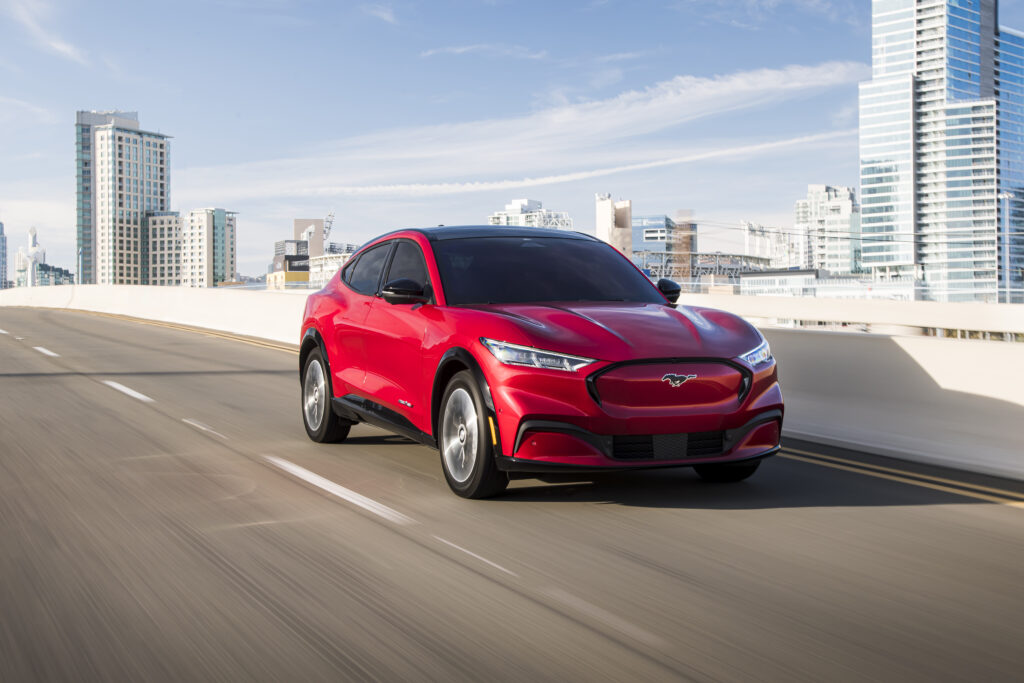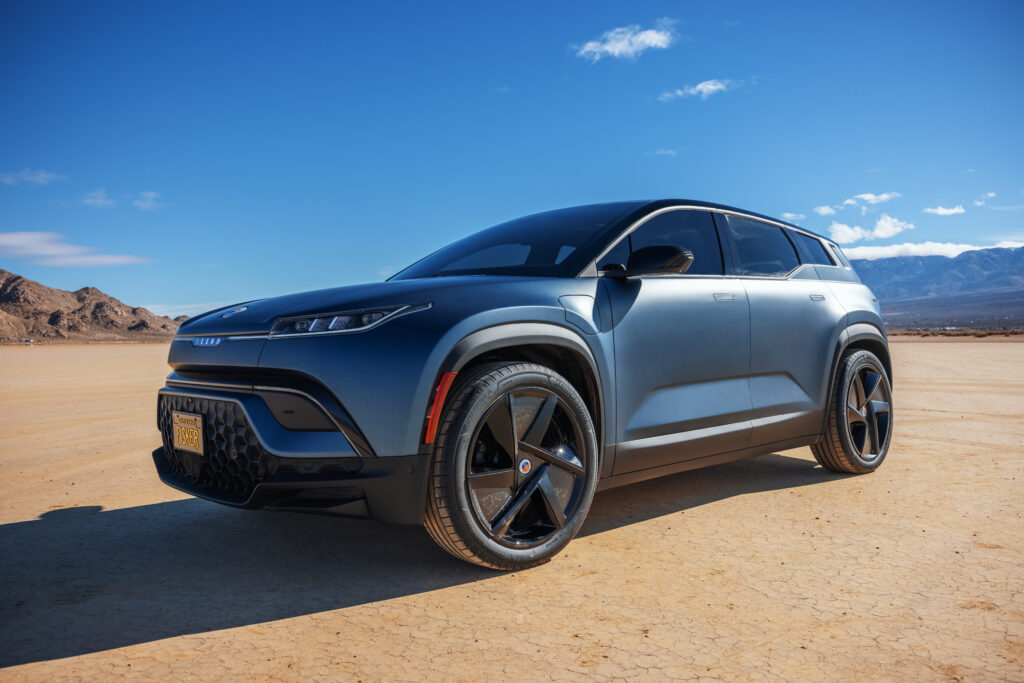
Buying a new car is rarely a wise financial decision. Truthfully, cars are depreciating assets (unless there’s a chip shortage and car prices appreciate). That means from the moment you drive off the lot with your shiny new wheels, you’re actually losing money.
For some car buyers, leasing is a great way around depreciation. However, leasing isn’t for everyone. For many consumers, it’s worth asking the question “what does it mean to lease a car?”. In this guide to leasing a car, we’ll explain all there is to know about leasing, and how to shop smart in 2024.
Contents hide
The last time a car commercial grabbed your attention with an attractive lease deal, it probably included a whirlwind of rates, payments and terms crammed into thirty seconds. What exactly is a car lease? An auto lease is a long term rental agreement for a vehicle that is subject to specific terms and conditions. The lease terms are agreed upon by the customer and dealership (or automaker in the case of Tesla, Rivian and Lucid), and a third-party leasing company who actually takes ownership of the vehicle (and then leases it to you).
There are four parts to a lease:
1) The capitalized cost (which is the out-the-door price on a lease)
2) The residual value of the vehicle
3) The money factor
4) The state sales tax
These four factors determine the total cost of the lease, and in turn the monthly payment. Let’s talk about the details.
Instead of negotiating an out-the-door price (which is the price of the vehicle plus all taxes and fees), you negotiate the capitalized cost (also referred to as the “cap cost”) of the lease. The cap cost is the amount that the leasing company is paying for the vehicle. This will include:
Some of these charges are negotiable. For example, you don’t need nitrogen-inflated tires or security etching that you didn’t ask for billed on your lease agreement. For every $1,000 in additional cap cost, that will roughly translate to $27 a month in payment on a 36 month lease. Take a long, hard look at the itemized invoice before signing anything!
Residuals are a percentage of the MSRP as set by the leasing company, and they are not negotiable. The residual value is the vehicle’s projected value at the end of the lease term. When you lease, you pay for the amount of depreciation that will occur over the course of the lease term.
For example, if the residual on a 36 month lease is .75 (or 75%), your lease will include payment that covers the 25% expected loss in value over the course of 36 months.
Residual values are not negotiable and they are set by the leasing company based on allotted annual miles to be driven. Specifically, 7,500, 10,000, 12,000 or 15,000 are the standard mileage amounts that are normally offered.
Dealers cannot modify or adjust the residual percentages other than for additional annual miles allowed to be driven. Check out an example of how residual values fit into leasing here. The residual value is disclosed on the lease as the amount that you can purchase the vehicle for at lease end.
The money factor is set by the lender and can be marked up to the consumer, much like on a car loan. When a buyer finances a car, the dealer works with a number of lenders behind the scenes to get an attractive rate. However, that’s not the rate that the salesperson closing the deal will quote. Dealers markup loans, and pocket the difference. Fascinating and distressing, right? Here are all the ways that dealers make money when selling you a car.
With a car lease, dealers make money by marking up the money factor on a lease. The lender charges the dealer a money factor of say, .00125, and the dealer marks it up 50, 75 or even 100 basis points. The difference between the buy rate (what the lender charges the dealer) and the marked up rate (what you’re quoted) is additional backend profit on the lease for the dealer.
You should always try to negotiate the money factor to the buy rate or as close to the buy rate as you can get!

Taxes in most states are added to the total price of the lease. NY, NJ, MN, OH, and GA charge sales tax upfront on the total amount of the lease payments. VA, MD, and TX charge sales tax on the total selling price of the vehicle (the cap cost). In all other states, sales tax is simply factored into your monthly payment.
Sales tax is not negotiable, but it does vary from state to state.
Simply put, the leasing company owns the vehicle that you are leasing from them. In most cases that will either be that brand’s captive lender or an outside bank. The vehicle will be registered in both the leasing company’s name and your name as the lessee. You will be responsible for registration renewals, maintenance and all insurance.
It’s also possible that the leasing company financed the vehicle that they bought from the dealer. In that case, the financial institution would possess the title until the leasing company pays it off.
No, but If you want to lower your monthly payment, consider making a down payment on your lease. In a car lease, the down payment is called a capitalized cost reduction, or cap cost reduction. These up front payments are optional, but they can help make leasing more affordable by lowering the monthly payments. The payment is lower because the cap cost reduction has lowered the cost of the vehicle to the lender.
Any advertised lease payment typically requires a specified amount of cash down. For example, an advertised lease monthly payment may include $3000 cash down plus the first payment, acquisition fee, tax, title, registration and dealer fees.
Remember as a rule of thumb, for every $1000 in cap cost reduction on a 36 month lease your monthly payment will be reduced about $27.
Shoppers with bad credit may be required to make a security deposit, which is returned once the car is returned at the end of the lease.
I put zero down on my leases and when I say zero, I mean not even a penny. Cash down on a lease just reduces the cost of the vehicle to the lease company and if the vehicle were ever declared a total loss, that money that you had put down is lost forever. A lease down payment is not covered by your auto insurance. They only cover the value of the vehicle, not the value of the cash that you put down.
Whatever money you are thinking about putting down, deposit it into a separate investment account and draw from it monthly when you are making your lease payments. This way your money is still making money each month until you need to draw from it.
Yes, your lease’s monthly payment includes interest, this is the money factor.
You can’t shop around for a better interest rate when it comes to a lease without shopping for a different car altogether. You won’t see an interest rate on your contract when leasing a car, but you can request this information from the dealer or leasing company. The total amount of interest paid on a car lease depends on the length of the lease term and even the type of vehicle. If you lease a model that is likely to depreciate faster, the leasing company is more likely to charge higher interest to ensure that loss in value (the residual) is accounted for.
One way to lower your interest rate (Money Factor) on a lease is by placing Multiple Security Deposits if the lender provides the option. Each MSDS equals one monthly payment and will reduce your MF by a percentage point determined by the lender. There is a limit on how many MSDS you can apply, but the savings can be significant in some cases.
Yes, in most cases customers can pay for a lease up front. Paying for an entire lease at the time of signing is called a one-pay, or single-pay lease. Some lenders will discount interest costs if you pay for the whole lease up front. Make sure to find out if there is any benefit to you before you commit to paying for a car lease up front.

Risk Mitigation
Convenience:
Flexibility:
Financial:
The car isn’t yours.
Few vehicles will lease well.
Fees and costs.
Still debating whether to lease or buy? We’ve got you covered. Check out our CarEdge guide to leasing versus buying in 2022.

Yes, an EV lease is a great way to give electric vehicles a try. Some lease companies pass along the EV tax credit to the consumer by lowering the capitalized cost by the EV credit amount.
In 2024, EV leases are surprisingly affordable. See the best EV lease offers here.
Leasing an electric car may be a great option to consider since battery technology improves every year. When your lease is up, you’ll be stepping into a whole new world of next-generation EVs.
Negotiate what you can
The cap cost and money factor are negotiable. You should always try to negotiate the money factor as close to the buy rate as you can get!
Shop around for deals, be flexible
Deciding what to do at the end of a car lease depends mostly on how you feel about the car. Of course, your financial situation and inclinations also come into play.
These are your options at the end of a car lease:
Which option is a good fit for you? If you love the vehicle and can afford to finance or buy it outright, you can keep a vehicle with a good service history at a set price (from the residual on your lease contract).
If you no longer need a vehicle, leasing allows you to simply return the car and keys at the end of the lease term. Remember, leasing is just like a long-term rental.
Stuck on what to do when your lease ends? Check out our guide, “What to Do At the End of a Car Lease.”
Join the CarEdge Community for expert advice and a place to connect
Join the CarEdge Community to connect with auto industry experts and fellow consumers and car enthusiasts. See the best deals, latest news, and car buying shenanigans to steer clear of. Best of all, a sense of community awaits. We’d love to connect with you!